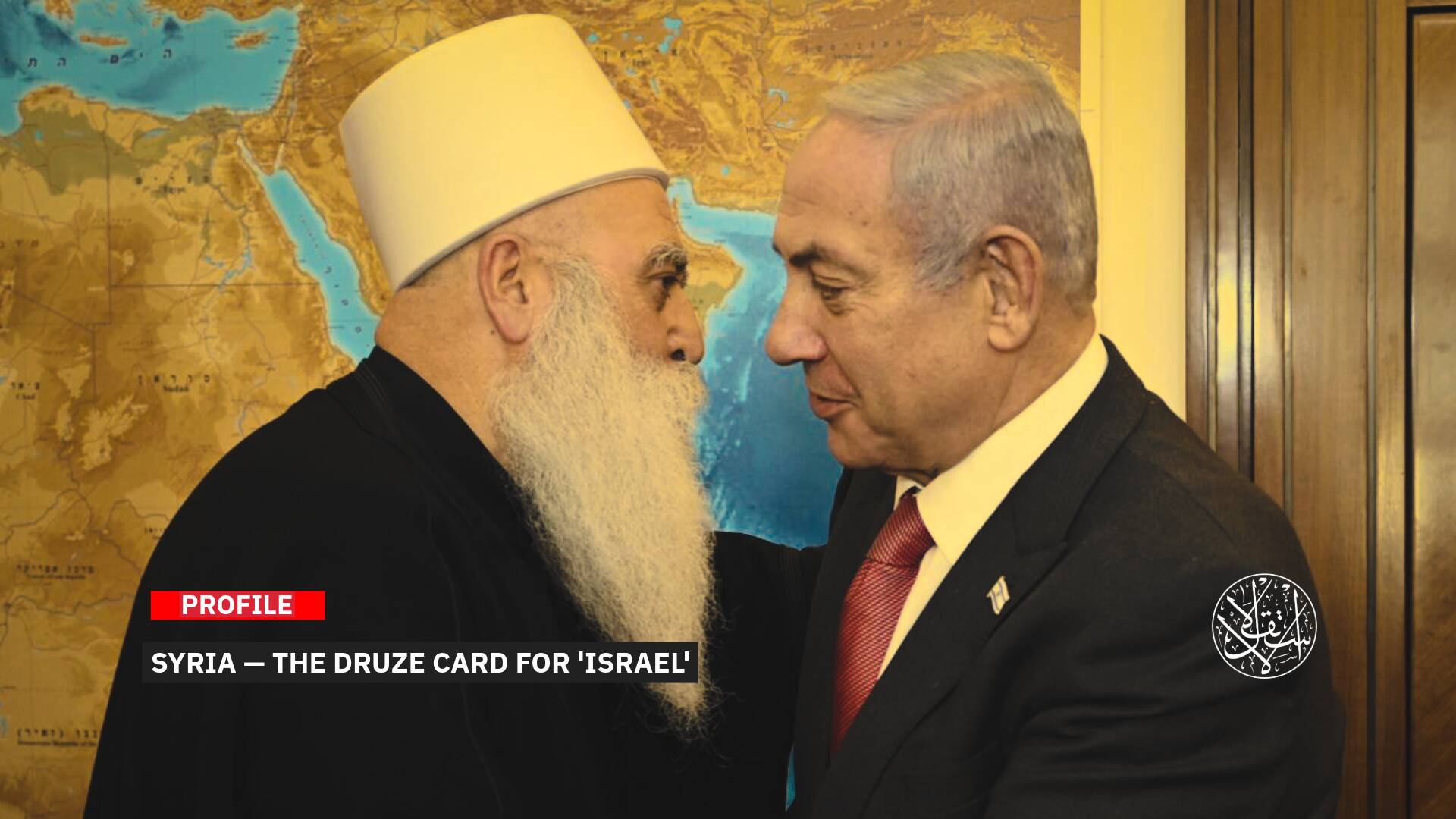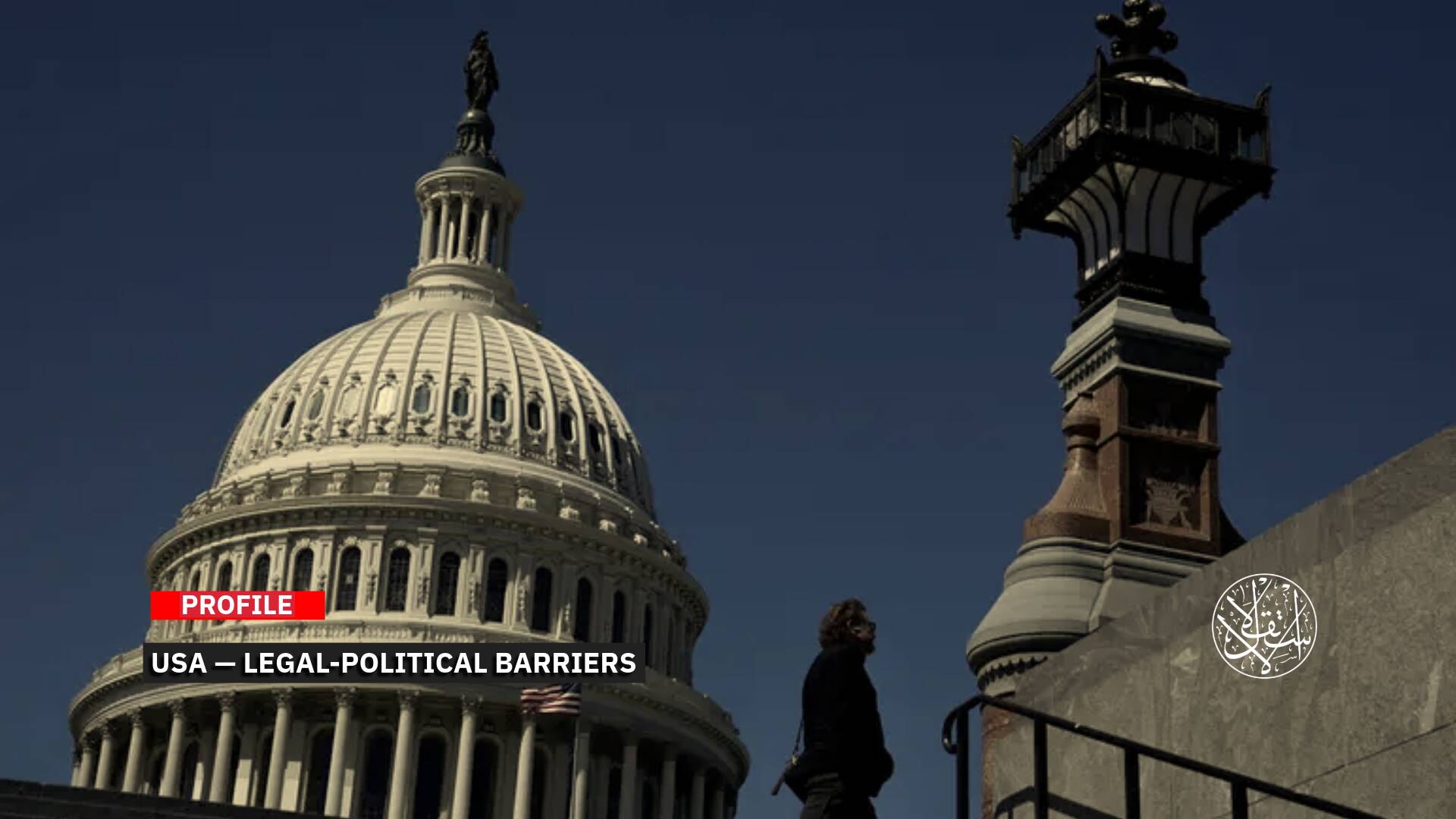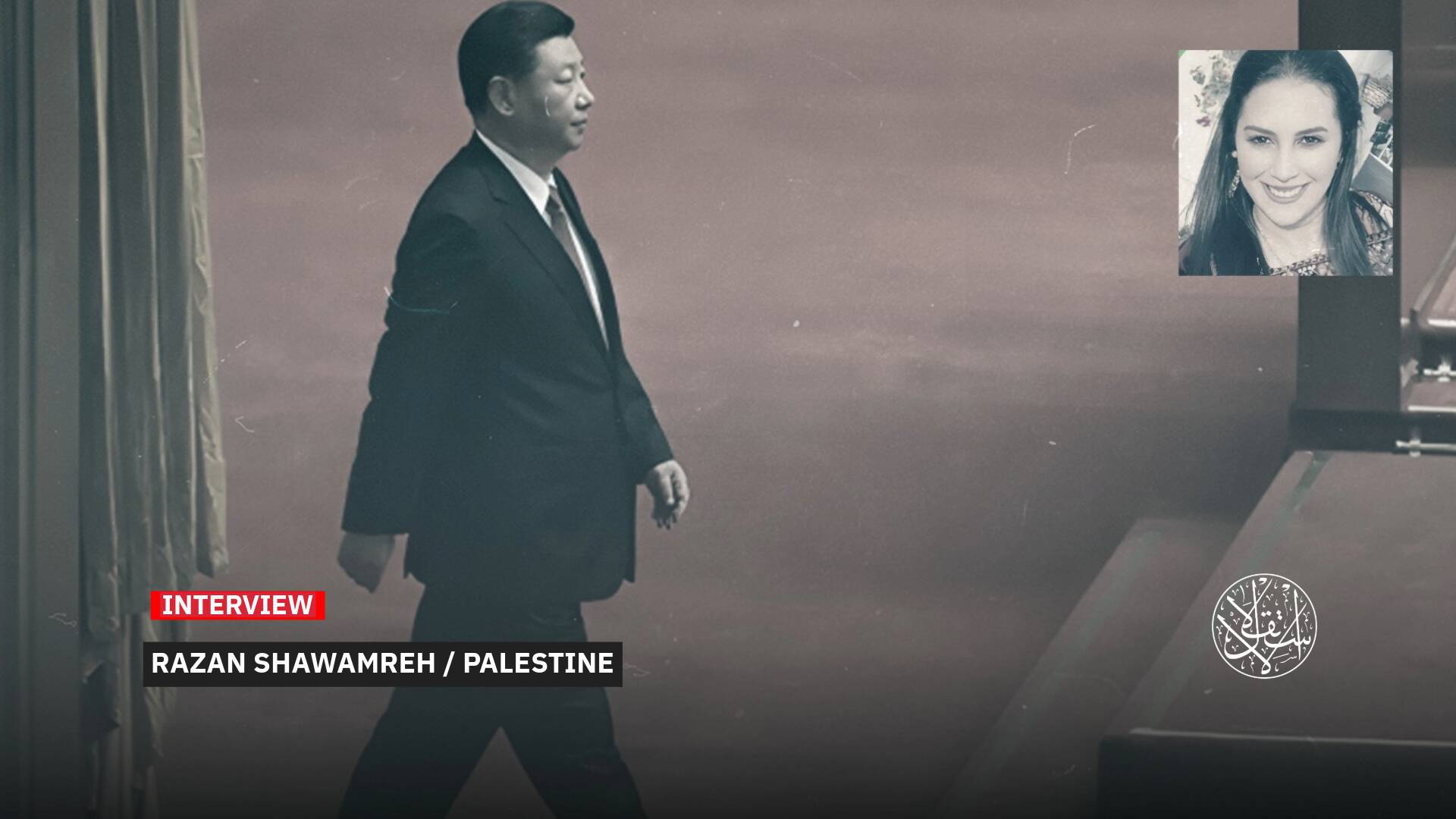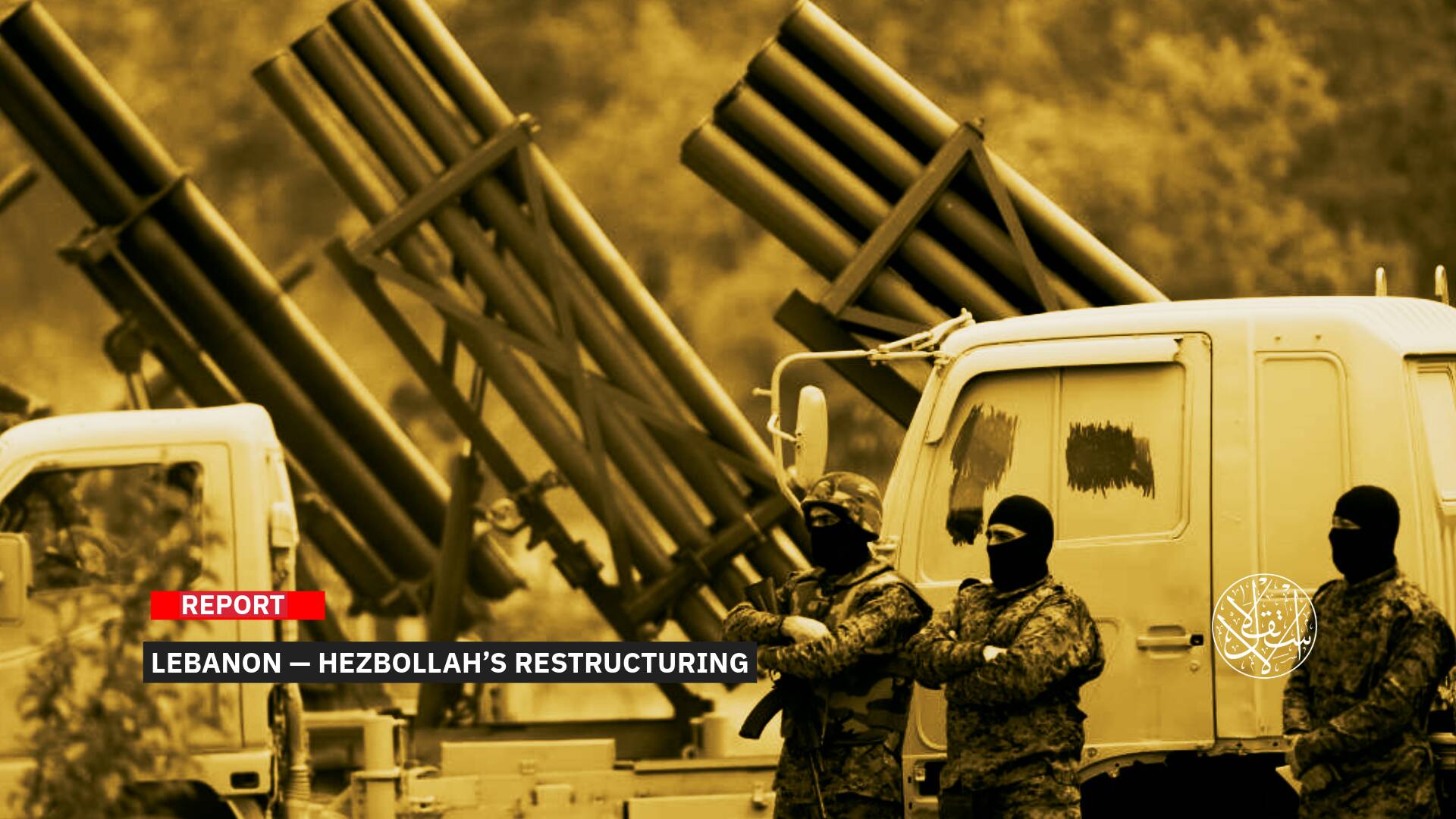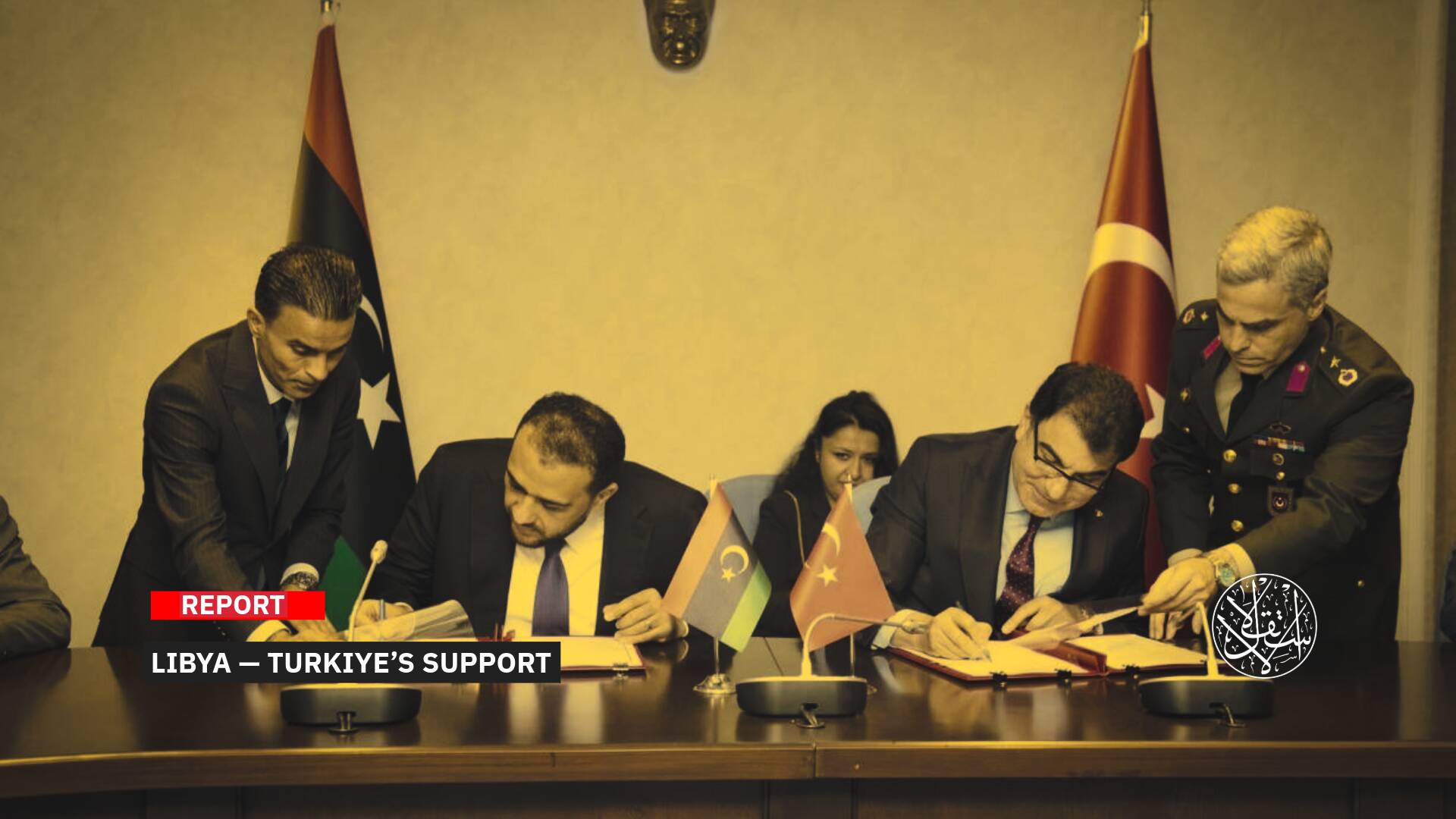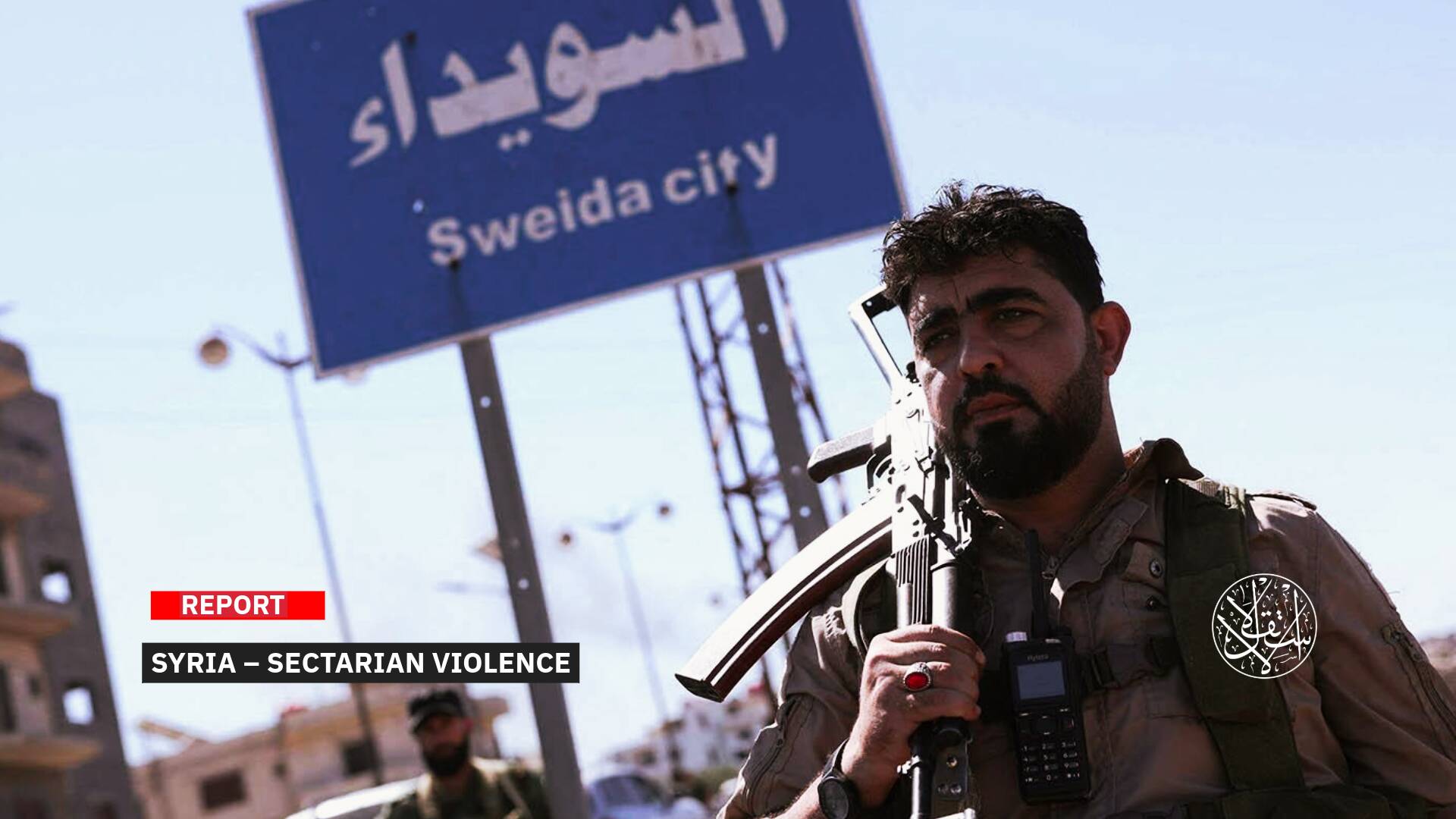What Is the Possibility of Dissolution of the ‘Popular Mobilization’ in Iraq?

The Popular Mobilization dissolution has become one of the electoral programs of one of the prominent Shiite political forces in Iraq, although at the same time it represents a red line for others, especially those representing the Iranian camp.
This is because the Popular Mobilization consists of the majority of militias under the will of Tehran in Iraq.
The Sadrist movement, led by the Shiite cleric, Muqtada al-Sadr, is leading the ranks of those demanding the dissolution of the Popular Mobilization and the integration of its elements into the security forces. In their electoral program, he pledged to implement this if he obtains the first place and assumes the position of Prime Minister in the next session.
On the other hand, the Fatah Alliance, led by Hadi al-Ameri, stands at the top of those rejecting the agenda of the Popular Mobilization dissolution, as his alliance represents the political wing of this military formation, considering it "rejected conspiracies," and that it is from the past, and cannot be restored.
More than once, Muqtada al-Sadr called for limiting weapons to the hands of the state as happened in 2017, after a rare visit to Saudi Arabia.
At that time, al-Sadr demanded the former Iraqi Prime Minister Haidar al-Abadi to integrate disciplined elements of the Popular Mobilization into the Armed Forces with the withdrawal of weapons from his factions.
On September 20, 2021, the Iraqi MP Rami al-Sakni revealed that the Sadrist Saairun Alliance (Alliance Towards Reforms) announced their adoption of the idea of the dissolution of the Popular Mobilization.
He continued during a television interview: "The Sadrist Movement had demanded, in the reform document, the integration of the Popular Mobilization Forces."
The reform document, which was the political paper put forward in September 2021, was the reason for Sadr's return to boycotting the elections.
Al-Sakini added that "the Sadr tweeted more than once about the isolation of those members of the Mobilization who carry weapons and tones higher than the state's."
In September 2021, Muqtada al-Sadr called for the prosecution of offensive elements of the Popular Mobilization in Iraq, stressing the need to merge them into the security forces in order to preserve the prestige of the state.
Press reports indicate that al-Sadr is in sharp disagreement with armed militia leaders who are part of the Popular Mobilization Forces, for over a month or so, about the process of the PMF’s integration and the removal of abusive groups from it.
In parallel, Nofal Abu Raghif, spokesman for the al-Hikmah Movement (National Wisdom Movement) led by Ammar al-Hakim, drew attention in April 2021 to the danger of the survival of the Popular Mobilization, supporting their dissolution.
In context, MP Raad al-Dahlky stressed that he prefers "to dissolve the Popular Mobilization and integrate it into the official security services so that it is not an instrument in the hands of outlaw gangs."
He pointed out that "the Popular Mobilization played a great role in fighting ISIS, but unfortunately it has become exploited by Iran's armed groups."

In return for these calls, the Chairman of the Fatah Alliance, Hadi al-Ameri, announced his rejection of what he described as "conspiracies" to merge or dissolve the Popular Mobilization, stressing that it remains as it is with its mission to preserve Iraq's sovereignty and support other security services.
On September 17, 2021, al-Ameri said during his attendance in an electoral rally in support of the Fatah list in Diyala province (east of the country) that "there are conspiracies calling for the integration or dissolution of the Popular Mobilization, and we will not allow this."
Al-Ameri explained that "the Fateh Alliance is keen to build security and military institutions, and the need to build an integrated army, and to exchange roles between the security services," demanding the "arming of the army and providing it with the required capabilities and mechanical defenses, aircraft, and all kinds of weapons."
At the same level, MP Mukhtar al-Musawi said, representing the Fatah Alliance itself, that "there is no possibility to resolve the Popular Mobilization, and the idea is only circulated for electoral propaganda, to please the parties that refuse the PMF and to aim for the prime minister seat."
Al-Musawi stressed during press statements on October 1, 2021 that "no one can dissolve the Popular Mobilization except the religious authority Ali al-Sistani, who issued the fatwa of its formation during the war against ISIS in 2014."
The MP considered that "the leader of the Sadrist movement fluctuates in his decisions, as he previously said that he would not participate in the elections and then retreated. So discussing the dissolution of the PMF is not on the table, and it is more important to discuss strategic issues first."
He pointed out that "the dissolution of the Popular Mobilization cannot be carried out by a pen order from the head of government, because it has a law voted on by Parliament at its last session, and therefore its dissolution is either carried out by same path or by an advisory opinion from the Sistani Authority."
He pointed out that "the PMF defended Iraq and it imposed itself for vote on its law in the Parliament. The words of its whole dissolution to all for electoral propaganda; we will see who talks about this after the end of the elections scheduled for October 10, 2021."

On the other hand, Iraqi political analyst Wael al-Shammari says that "it is better to merge the PMF with the security forces so to uncover and reveal the truth of its loyalty [follows the Guardianship of the Islamic Jurist in Iran] to people, and how it is used to achieve Tehran's policies inside Iraq."
Al-Shammari confirmed during press statements on April 24, 2021 that "the armed factions associated with Iran do not want to be separated from the Mobilization of Shrines [Atabat Mobilization: affiliated with the Shiite authority Ali al-Sistani in Najaf], and are pressing their political wings within the Iraqi Parliament in order not to achieve the separation process."
This was reflected in a tweet by Hezbollah security official Iraq, Abu Ali al-Askari, who wrote: "The Popular Mobilization will not be dissolved, and if this happens (as in the premise of the impossible), the Islamic resistance will accommodate the mujahideen of the Mobilizations in all their terms and specialties," in his words
The Iraqi political researcher Ahmed al-Adhami saw during press statements on October 1, 2021 that "the dissolution of the Popular Mobilization has become difficult, especially since it has a law in Parliament that considers it part of the security forces. If any political party wants to repeal the law, it must come with a majority in parliament."
He continued: "In addition, Iran will not allow the dissolution of the Popular Mobilization that it considers to be the Iranian Revolutionary Guard version in Iraq, to protect the political system in the country controlled by the Shiite forces."
Al-Adhami expressed his belief that "the Sadrist Movement's talk about the dissolution of the Popular Mobilization in its electoral program is intended to attract Sunni, Kurdish, and even Western forces and anyone who refuses [those forces] to obtain the position of prime ministership in the next government."
The Iraqi researcher pointed out that "the leader of the Sadrist movement’s political promises cannot be relied upon; he has a very volatile personality, and it is very possible to evade what he pledges to the political forces and even the people. There are many evidence from 2003 until today."
Al-Adhami believes that "al-Sadr may want to dissolve the Popular Mobilization Forces, as he fears that the Sadrist Movement will be struck by it in the future. It is the heavy Iranian stick that can stand in its face, so it may be the reason why he seeks to dismantle it even though it is almost impossible."
In the opinion of the researcher, "the Popular Mobilization Forces cannot be dismantled at the time, not without the collapse of the al-Faqih regime [the Guardianship of the Islamic Jurist] in Iran. If any political party currently takes the step of dissolving it and integrating it into the security services, Tehran will not hesitate to burn the entire Iraq to thwart the process."
Al-Adhami added, "Hadi al-Ameri's threats are only indications that they will do everything to preserve the Popular Mobilization, as he described calls for its dissolution or integration as conspiracies."

In light of talking about the future of the PMF after the upcoming elections, the Iraqi newspaper Almada quoted a political source (unidentified) on September 20, 2021 that "the Sadrist Movement and some Sunni forces put forward the idea of integrating the Popular Mobilization Forces into the security institutions."
The source explained that there is another proposal to deal with the PMF "which is to control it," pointing out that "there is an intention that its leadership will be linked to one of the ministries of the interior or defense, but without dissolving the institution or its elements."
The source explained that this idea put forward "will lead to better control of factions while they remain in the form of a mobilization," but pointed out that the rejection will be from "some factions that obtain governmental fighters' salaries."
For his part, the Iraqi security and political expert Ahmed al-Sharifi considered that "the main problem is not in militias, but in parties that do not believe in a state of institutions, and this prompted those parties to adhere to armed factions more than the institutions that guarantee the security and sovereignty of the country."
Al-Sharifi added during press statements on August 12, 2021 that "the parties have found in their militias an alternative to security institutions, sometimes to settle against competitors, and sometimes to stay stronger than security institutions, which enables them to control the state and its material and human resources."
According to al-Sharifi, militias in Iraq represent "one of the main outputs of the political adoptions of Iraqi parties."
Al-Sharifi excluded the establishment of any projects that would reactivate the issue of integrating militias.

Al-Sharifi pointed out that the PMF "acquired high privileges that may end with the end of their militia role, which may push them to fight in order to retain those privileges, especially as the party-umbrella sponsoring them remains."
One of the most prominent obstacles to integration, as al-Sharifi expresses, seems to be related to the fact that "the leaders of these militias believe that their political and social role will end with the end of the presence of their armed factions, which makes it harder for the state to convince them."
Al-Sharifi pointed out that their integration of the militias into military and security institutions "must be carried carefully through studying the mechanisms of integration in a scientific way, and whether they will lead to homogeneity between the fighters or the survival of their militia identities within the institution."
He stressed that "what happened in previous years was the uncontrolled integration of militias, which led to the dispersion of loyalty within military institutions."
Former Prime Minister Haider al-Abadi tried more than once to control the Popular Mobilization Forces, but failed, while he revealed that "the salaries of the PMF went to some parties."
Former Prime Minister Adel Abdel-Mahdi also issued two excutive orders in 2019 and 2020 a case of disengagement of the PMF with political forces, but it did not actually materialize.
The number of PMF members is not specifically known, but numbers are traded between 120 and 150 thousand.
On September 13, 2021, the head of the Popular Mobilization Forces, Faleh al-Fayyyadh, announced the return of 30,000 elements whose contracts have been released in recent years to work after a continuous wave of protests in front of the fortified Green Zone and the headquarters of the PMF in central Baghdad.
Sources
- The fate of the crowd after the elections: Integration or control of the factions [Arabic]
- Al-Ameri comments on merging or dissolving the Popular Mobilization Forces: He makes a request for the army [Arabic]
- Muqtada Al-Sadr demands the integration of the Popular Mobilization Forces with government forces [Arabic]
- Integration of militias into the Iraqi military forces; A solution or a crossing to get legitimacy? [Arabic]
- Iraq: New developments on ‘the dissolving of the PMF’ [Arabic]


